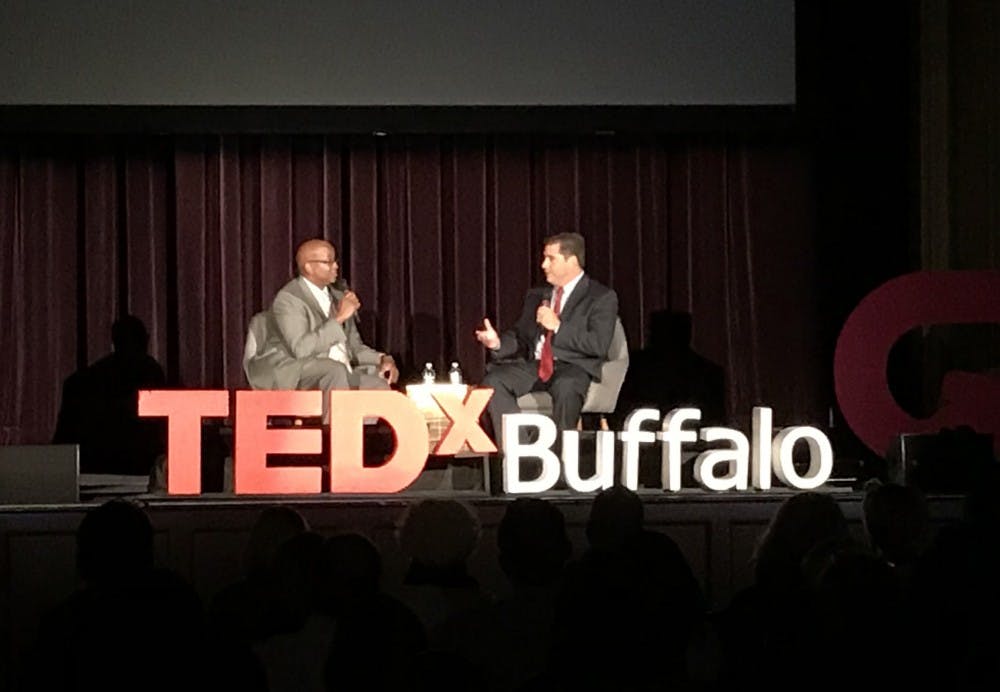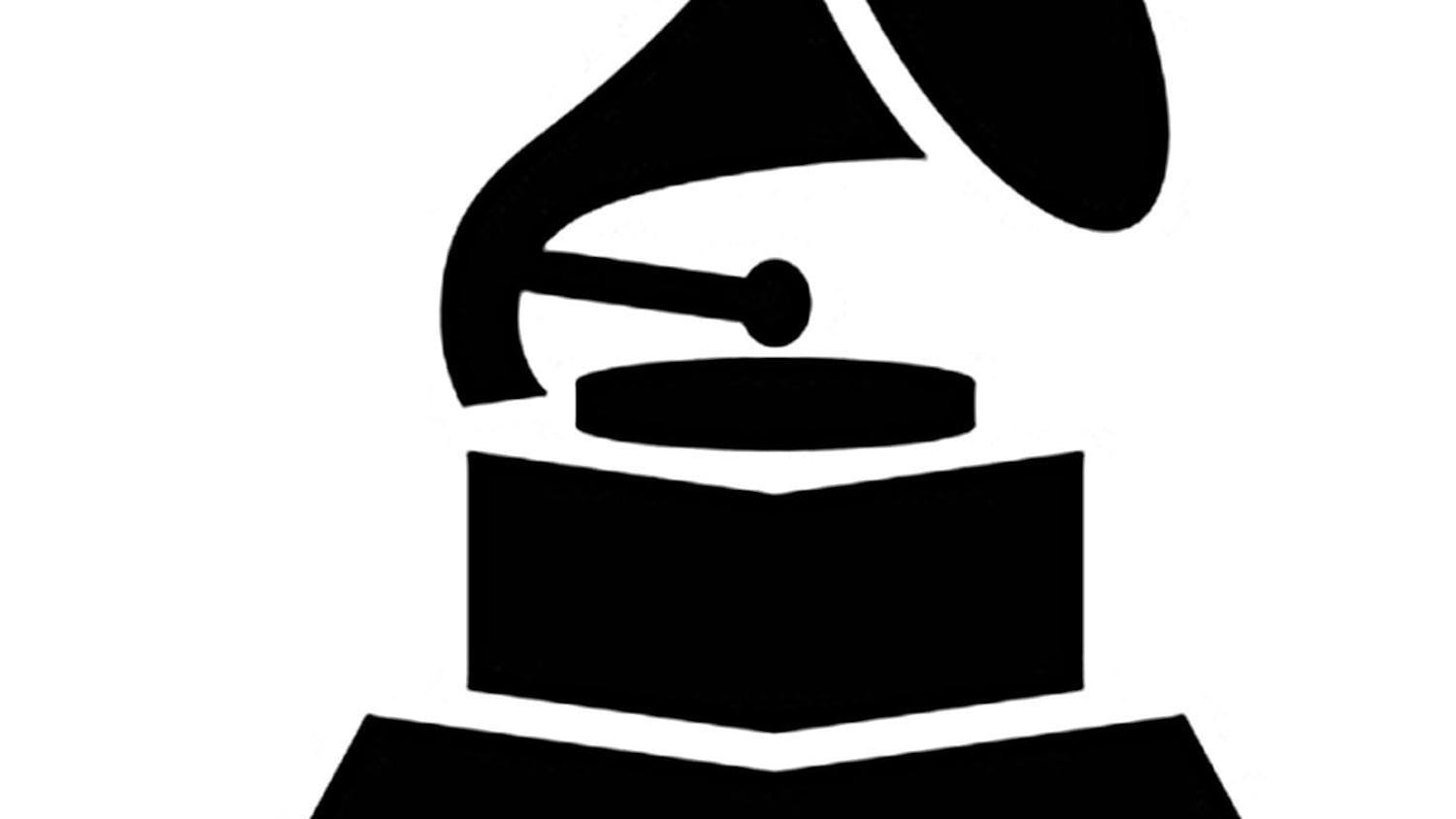TED, the nonprofit organization bringing industry leaders to its world-famous stage, is making its mark in Buffalo one speaker at a time. Buffalo’s eighth TEDx event –– “x” standing for an independently organized event sponsored by the parent company –– attracted fans of all ages Thursday night at Asbury Hall in Babeville.
TED –– Technology, Entertainment and Design –– held six speakers who presented on topics ranging from a local judge’s approach to dealing with opioid addicts to a modern-day inventor whose family has been in the industry for generations. Four of the speakers were UB alumni.
Roughly 500 people attended the event and there were more people than seats. Volunteers worked during the night’s first intermission to add more seating, and handed out cupcakes to attendees as they waited to be seated.
Arguably the most popular lecture of the night came from Daemen College graduate Annie Brady. Brady is a writer, YouTube sensation and blind activist, who compelled the audience with her first-hand account of what it’s like to live as a blind person in a world meant for the sighted. According to Brady, only 28 percent of blind adults are employed full-time in the United States.
“If the national unemployment rate was that low, politicians would be falling all over themselves to fix it,” Brady said.
Buffalo City Court Judge Craig Hannah, a graduate of the UB School of Law, opened up to the audience about his lifelong struggle with addiction during an intimate interview with Emmy-winning reporter Pete Gallivan.
Hannah’s changes to the drug court system have been viewed by New York State as effective and there are plans to proceed with trial runs in different cities.
“The second you come to our court, we give you the help and assistance that you need. We put the criminal case on hold while we focus on your medical needs,” Hannah said. “We don’t want to lock up an addict because there is no way you can lock up an addiction.”
Hannah said his court has seen a decrease in reoffending as he treats addicts like victims instead of offenders, giving them resources to prevent further run-ins with the law. He sees the recent rise in overdoses in Erie county as a direct result of doctors over-prescribing pain medication for entire generations of people.
Audience members said they liked the variety of lectures TEDxBuffalo offered and how each speaker connected their area of expertise to Buffalo.
Dena Puglisi, a senior communication major, attended TEDxBuffalo because she watched TED videos online and found them captivating. She felt the night’s speakers were engaging and did a good job of covering a wide array of topics.
“My favorite speaker was Judge Hannah because he made the opioid epidemic seem more like a medical condition than I have ever heard from law enforcement,” Puglisi said. “The fact that he opened up about his own addiction made him seem approachable even though he’s a judge.”
Other speakers discussed more scientific topics instead of personal anecdotes, like UB alumni Michael Script, who has more than 10 patents and a citation from NASA. Script made a footprint in the world of innovative technologies. His inventions range from artificial intelligence to private communications.
One of his most progressive inventions, an infant respiratory heart rate monitor that withstands wiggling babies, came directly from his time studying child development at UB.
“I invent things in areas I’m not specialized in, it’s just a learning curve to each. Inventiveness is inside you,” Script said. “UB gave me the in-depth knowledge about child development that I needed in order to complete the respiratory heart rate monitor.”
Julie Palmer, a UB alum, founded People Against Trafficking Humans in 2015. It provides support services for individuals affected by human trafficking. Palmer emphasized that human trafficking is more than sexual slavery as it encompasses all types of involuntary workers being exploited for monetary gain.
“Human trafficking is a form of modern day slavery that affects an estimated 32 million people around the globe. That is double the African slave trade in its entirety,” Palmer said. “[Trafficking affects] every state, city, town, rural area. No one is immune.”
Audience member Joe Buttino, a sophomore social sciences major, said he learned a lot about human trafficking from the presentation. He said Palmer touched on a lot of areas he’s discussed in his classes and found the information to be relevant to his own studies.
“I’m glad more attention is being drawn to this very important and life-altering practice by traffickers,” Buttino said. “Palmer was especially interesting, her talk touched on a very obscure but unfortunately ubiquitous issue of the commercial sexual exploitation of children and human trafficking.”
Sharon Rudy is a staff writer and can be reached at news@ubspectrum.com





